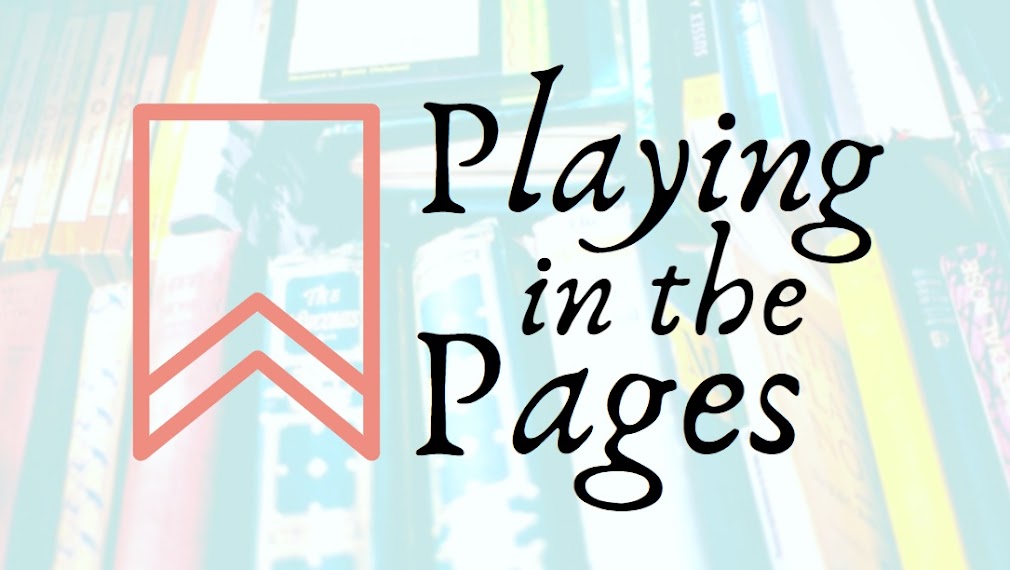Way back in July, we counted down ten of the ickiest, stickiest and most troublesome types of books that will make us immediately throw them back on the shelf (and I got a little trouble for my troubles; check out my response in this recent discussion about the thriller genre!).
Today, however, we're talking about a different kind of turn-off: the kind that can creep up in the middle of a book, strikes without warning, and leaves you reeling, or just grate on your subconscious so thoroughly that by the end of it, you're confident you lost a couple of brain cells. These unhappy surprises can make or break a book, depending on the situation... and here are our top offenders, helpfully divided into two sections: "Making It Tough" and "Spoiler Alert"!
MAKING IT TOUGH
1. Inaccurate or Unrealistic Portrayal of Time Period
If you're going to go through the trouble of setting your novel within the specific context of a singular time period, then you'd better well make sure that you've got it down pat. Make it recognizable and correct as that temporal setting, or don't even bother.
2. Unnecessary Love-Triangle Flip-Floppery
Love triangles themselves are a sticky subject with me, though they can be done properly (see: Throne of Glass, S.J. Maas). However, characteristic of a poorly-established romance and a dull-witted triangle-point-character, sometimes people have a decision making process that can swing more wildly than a kid at his first T-ball practice. Pick someone, and stick to them... that's the point of love, dummy.
3. Over-Confidence in Personal Vocabulary
If you've ever been an English major, you know the kind. Someone whose youthful zeal for writing combines with an ambitious drive for recognition, and results in the kind of multi-syllabic mumbo-jumbo that can stop an argument in its tracks by sheer confusion. Believe me, I like fun, weird words, too, but I'm not going to be the one to name my kids Merriam and Webster. Making writing deliberately confusing, just so you can show off that you memorized the dictionary, awards you no points.
4. Epistolary-Style or Diary-Oriented Novels
Okay, so maybe this one is just me: I hate novels where a specific attention must be placed on singular or multiple narrators, who are sometimes speaking at different times, in different places. It just gets distracting for me, and it's easy to lose sight of the story itself. It's becoming more popular to integrate text message and IM conversations to the narrative, now, as well, which makes me question, why can't you just make it dialogue? To me, it screams of an attempt at making things interesting, which it doesn't.
5. The Disingenuity Disease
disingenuous (adj): to not be truly honest or sincere, giving the false appearance of being candorous. Present in basically every novel, everywhere, where love and relationships are involved, or someone's turning into a monster, this disease is one where the characters find themselves being completely incapable of telling the truth, even to the detriment of others involved. If you're actually turning into a zombie, best stop hiding it, and just let someone know. Seriously.
SPOILER ALERT!
6. Spoiler Alert: You're Related! (Or Not!)
Luke, I'm your father. But more importantly, that hottie Leia you were hitting on, is actually your sister. Whereas this grand reveal used to hold a lot of literary clout, it has become a lazy means of adding interpersonal intrigue, and the build-up of presumed sexual tension that took place beforehand just leaves a bad taste in our mouths.
7. Spoiler Alert: I'm Not Dead Yet!
From Aladdin to the Fairly OddParents, even magical creatures know that bringing back bodies is a big no-no. And yet, authors place themselves above these rules. Death loses its finality and bravado when you make it optional. Voldemort was so scared of it, that he imprisoned his soul in seven different places. Death is scary stuff, and you don't get to beat it in a fight.
8. Spoiler Alert: And Then The Nice Guy is... Not So Nice.
Typified by authors whose complexity of character construction rivals that of a Duplo Lego set, the act of a stereotypical "nice guy," "best friend," or "right-hand man" turning rogue at a critical moment in the narrative just speaks to me of faulty character dimension. If we can't see shadows of evil or motivation towards such earlier on, then you're just not building a realistic enough cast.
9. Spoiler Alert: Oh Yeah, That Thing That You Need? It's in the Other Place.
Most often found in ill-crafted quest-oriented novels, this trope builds anticipation and plot structure around the idea that once our protagonists make it to this one specified location, a climactic amount of action will take place. However, when the journey comes to an end, only to have it revealed that the real fight lay somewhere else, that trust and tension built up with the author to lead you to the payoff completely disappears, and now, it's just back to more mindless trudging.
10. Spoiler Alert: Watch Out for That Cliff!
Don't you just hate it when your book ends with a
What's Your Top Ten?












